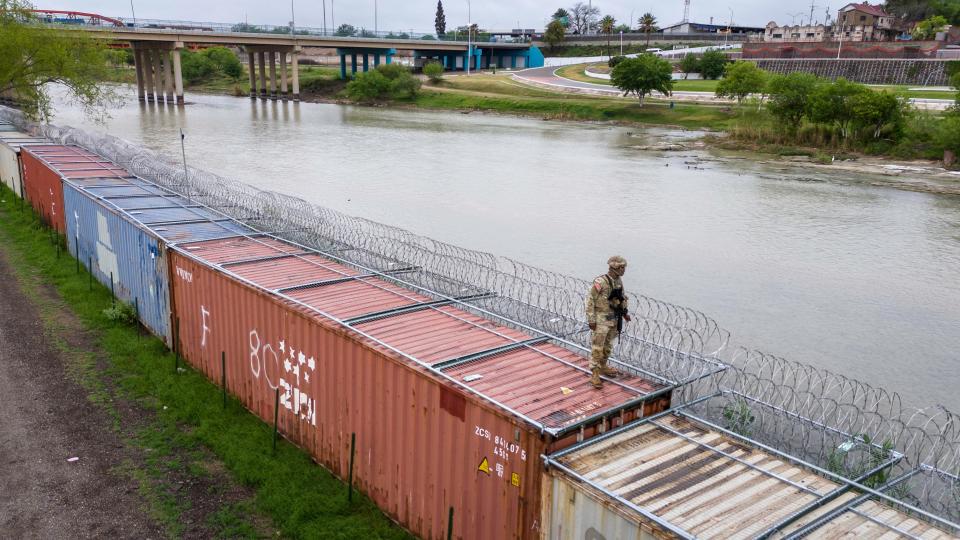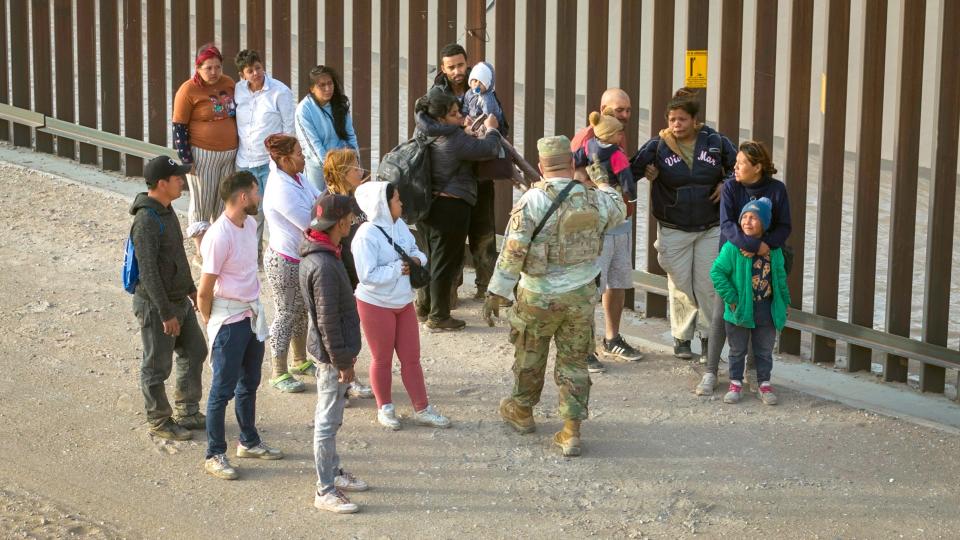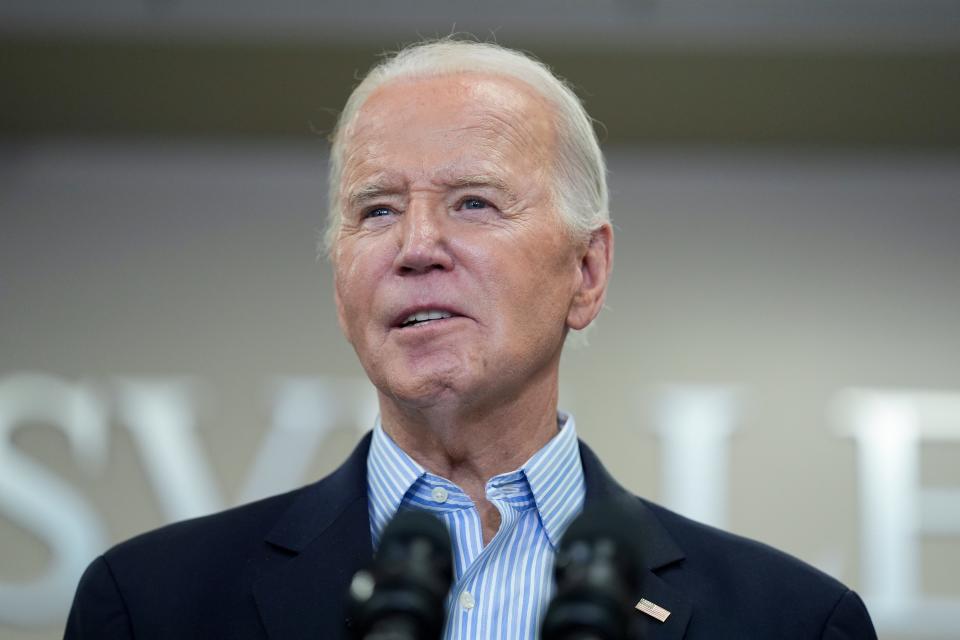Supreme Court lifts hold on Texas law letting police arrest migrants who illegally enter US
WASHINGTON ? The Supreme Court on Tuesday said Texas can ? for now ? use a new state law to detain and deport migrants entering or living in the U.S. illegally, a loss for the Biden administration which has been fighting with the state over how to secure the nation’s southern border.
The law, originally set to go into effect on March 5, had been on hold while it’s being challenged by the Justice Department.
The hold was lifted over the objections of the court's three liberal justices.
"Today, the Court invites further chaos and crisis in immigration enforcement," Justice Sonia Sotomayor wrote in a dissent joined by Justice Ketanji Brown Jackson. “Texas can now immediately enforce its own law imposing criminal liability on thousands of noncitizens and requiring their removal to Mexico.”
Related: Supreme Court lets stand a ban against Cowboys for Trump co-founder using 14th Amendment

Justice Elena Kagan wrote a separate dissent.
The Justice Department had called the law "flatly inconsistent" with the court's past decisions, which recognized that the power to admit and remove noncitizens lies solely with the federal government, the department told the Supreme Court.
But Texas officials said the state is the nation’s “first-line defense against transnational violence” and the law is needed to deal with the “deadly consequences of the federal government’s inability or unwillingness to protect the border.”
The state also argued the Supreme Court didn’t have to intervene because the New Orleans-based U.S. Court of Appeals for the 5th Circuit is taking up the issue in April.
More: Mask mandates? Supreme Court rejects appeal from Marjorie Taylor Greene, GOP lawmakers

Two of the conservative justices who allowed the law to go into effect ? Justices Amy Coney Barrett and Brett Kavanaugh ? said the Justice Department can come back to the Supreme Court if the 5th Circuit Court of Appeals doesn't decide quickly whether the law should be paused until it's fully litigated.
"Before this court intervenes on the emergency docket, the Fifth Circuit should be the first mover," Barrett wrote.
In addition to the federal government’s challenge, the law is being fought by El Paso County, Texas, and Las Americas Immigrant Advocacy Center, which provides free legal representation to asylum-seekers and other immigrants in El Paso.
"It’s painful to know that your own state is so afraid of the multi-racial democracy that is the majority of Texas," said Marisa Limón Garza, executive director of Las Americas. "It’s already caused a great deal of psychological damage."
More: Supreme Court rejects appeal from parents who lost custody of trans teen
Texas Gov. Gregg Abbott and the legislative authors of the bill say state troopers won’t target longtime residents of Texas, only those suspected of crossing illegally within the border zone. Border community leaders and immigrant advocates say the law will unfairly target their majority-Hispanic communities.
"This is a very unfortunate moment because of the impact that SB4 will have not only for immigrants but on Latino families and on Texas at large," said Fernando Garcia, executive director of the El Paso-based Border Network for Human Rights, a nonprofit that advocates for immigrants.
"Anybody – even a U.S. citizen – could be subjected to enforcement just for the relationship they have with someone who is undocumented," he said.
Texas Attorney General Ken Paxton called it a “huge win.”
Noting the court's action on Tuesday isn’t the final say on the law, Abbott’s response was measured.
“We still have to have hearings in the 5th circuit federal court of appeals,” Abbott wrote on social media. “But this is clearly a positive development.”
White House press secretary Karine Jean-Pierre said the decision will make communities in Texas less safe, burden law enforcement and sow “chaos and confusion” at the southern border.
The law, she said, is “just another example of Republican officials politicizing the border while blocking real solutions.”
More: Border life goes on despite bill failure and threat to 'shut it down'

The Supreme Court’s decision was a setback for the Biden administration which got help from the justices in January in another fight with Texas.
In a 5-4 ruling, the Supreme Court allowed the administration to remove razor wire barriers that Texas erected along a 29-mile stretch of the Rio Grande meant to block migrants at the Southwest border.
Abbott, a Republican, authorized the installation of the razor wire as part of a broader effort to deter migrants from crossing the U.S. border from Mexico. That included a stretch of the riverbank in Eagle Pass, much of which is private land.
But reams of razor wire installed by the Texas National Guard, at the governor's direction, remain on the banks of the Rio Grande in El Paso.
More: Could evangelical Christian women hold the key to compromise on immigration reform?
More: Can the US handle more immigration? History and the Census suggest the answer is yes.
Opponents of the law said the fight wasn't over.
“While we’re disappointed, this is certainly not the end of the story for our challenges and the United states’ challenge to the law,” said Anand Balakrishnan, ACLU senior staff attorney.
“The Supreme Court didn’t comment on the merits of the issue,” he said. “They only said it’s not the right time for their involvement.”
This article originally appeared on USA TODAY: Supreme Court allows Texas law permitting police to arrest migrants
